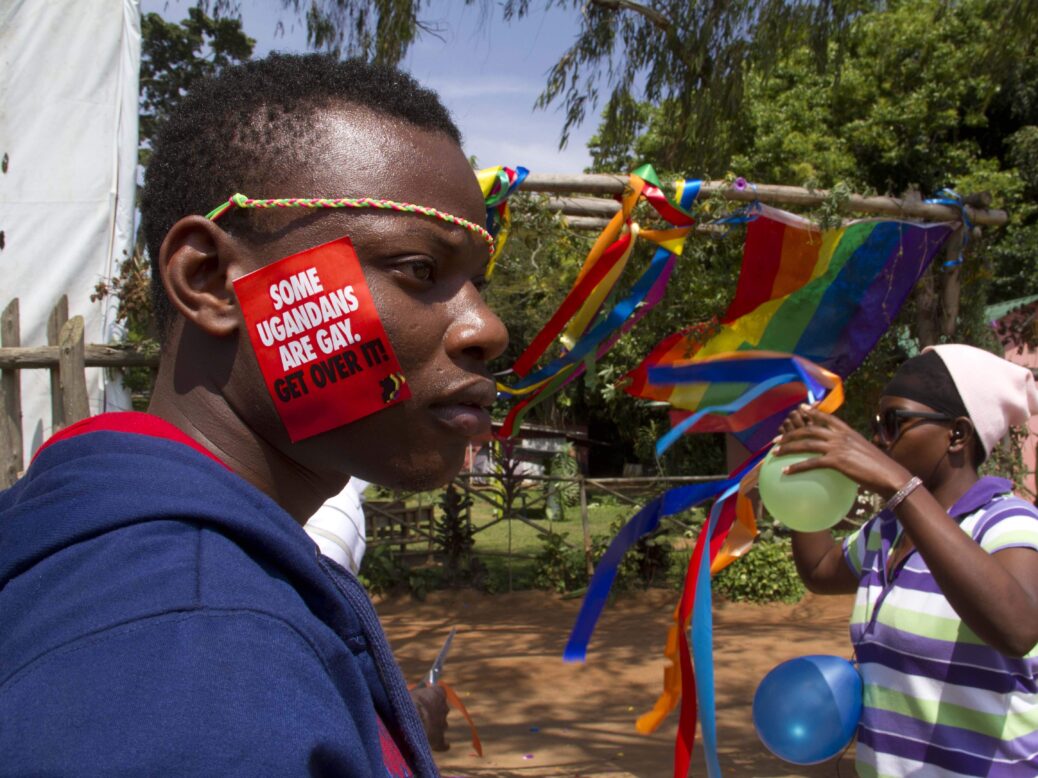
When Jean-Claude Roger Mbede was sentenced to three years for homosexuality, he endured sexual assault and malnutrition in a Cameroonian prison.
His imprisonment came six years after the country’s notorious Yaouande bar raid. Alain (not his real name) was arrested for being a member of a “gay gang”. The group of men were tortured with machetes.
In 2015, a young gay man called Eric claimed asylum in the UK having been beaten with sticks and nails in Ghana. Disbelieved, he was condemned as “guilty until proven innocent” by the British asylum system. Eric was locked up in a detention centre where he faced deportation.
A year later, LGBT activists Xulhaz Mannan and Mahbub Rabbi Tonoy were murdered by extremists in Bangladesh. An activist only known as “Ta” said, “I could not sleep the night after the murders, nor did I feel safe enough to go home. Everything was dark.”
Last year, 40 Nigerian men were arrested in Lagos — suspected of “performing homosexual acts” at a party. Their arrests followed the trial of 54 people in Zaria, northern Nigeria, charged with the “crime” of celebrating a gay wedding.
These are just a few examples of state-sanctioned and violent homophobia across the Commonwealth. Of the Commonwealth’s 53 nations, 37 criminalise homosexuality. In nine states, it is punishable by life imprisonment.
Today, the UK government hosts the Commonwealth Heads of Government Meeting (CHOGM). The summit “presents an opportunity to engage with Commonwealth member states and continue the UK’s special responsibility to advance equality”.
The Government Equalities Office had planned to launch an international best practice document on sexual orientation and gender identity. However, it now says the guide will come out in “due course”.
Could Brexit be the reason for this delay? Brexiteers have long promised that leaving the EU will lead to international trade deals with Commonwealth countries. International Trade Secretary Liam Fox hailed this year’s CHOGM as a chance to “redefine the trading relationship of the Commonwealth” and “invigorate” Britain’s links with member states.
The apparent discomfort around raising LGBT rights with our Commonwealth partners raises a difficult question: are we happy to appease homophobia in order to improve trade?
It’s a difficult question that should have an easy answer: no.
We’ve heard a lot about British values since June 2016. Some of the values for which Britain ostensibly prides itself are equality and decency. As a nation, we like to present ourselves as a champion of human rights; a country committed to standing up for what’s right. This reputation is not always deserved but it’s at least a set of values to aspire to.
The refusal to confront our Commonwealth partners about their state-sanctioned homophobia suggests a real and troubling betrayal of those values.
It is never okay to appease homophobia – to stand by and remain silent when LGBT people are arrested, locked up, tortured, and persecuted for their sexuality or gender identity. It’s even worse to deliberately backtrack on talking about LGBT rights for the sake of free trade.
This seems to be where Brexit is leading us. As we scramble around trying to maintain our global standing by signing trade deals with states that persecute vulnerable minorities, the UK government is under pressure to turn a blind eye to abuse. This should be unacceptable to everyone who cares about LGBT rights.
We cannot and must not agree to stay silent on human rights abuses in order to encourage a trade minister to sign on our dotted line. With the government taking a harder line on immigration, we cannot allow a post-Brexit Britain to further persecute LGBT asylum seekers.
As Fox shakes hands with his Commonwealth partners and talks up potential trade deals today, he should think about Ta, the activist too afraid to leave the house following the murders of his allies. He should think about Alain, living with the scars of homophobic torture. He should think about the UK’s decision to lock up men like Eric, forced to leave the country whose homophobia we are now all too willing to appease.
Fox and the UK government need to ask themselves: what message is a post-Brexit Britain sending to LGBT people around the world?
Right now, that message seems to be: we will not stand by you and your rights when there’s cash on the table.
At the same time, we’re telling governments who sanction homophobia: We will cosy up to you as you roll back LGBT rights.






